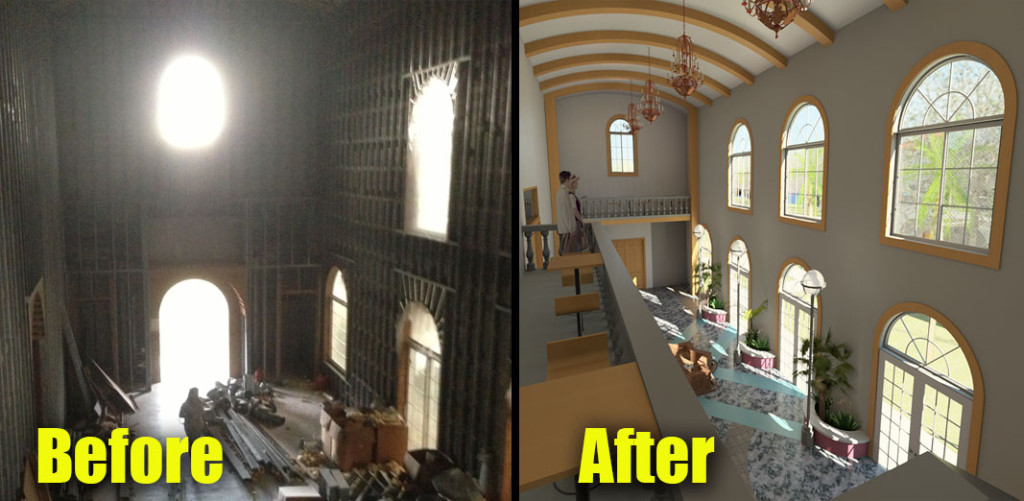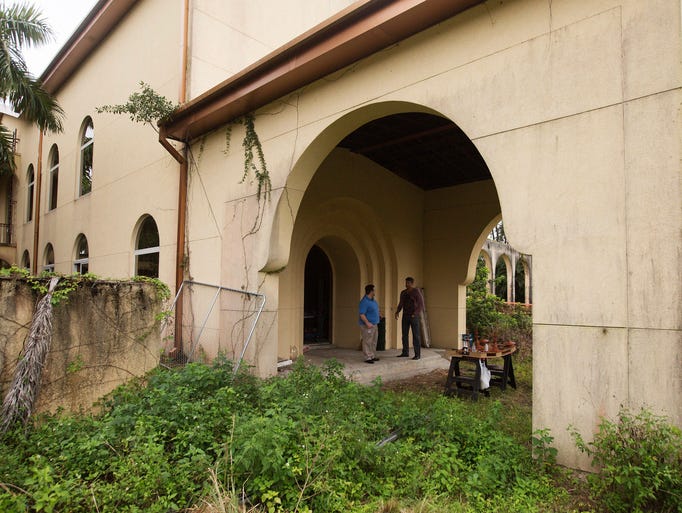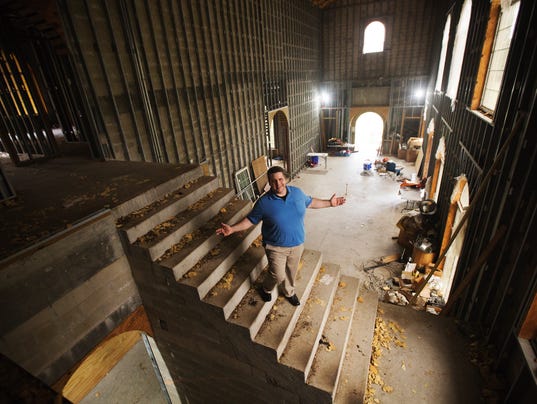About

The application to re-zone 6401 Winkler Road to a Holistic Medical Center, has been found sufficient by Lee County Office of Economic Development, Zoning Division. A public hearing occurred on February 25, 2015. No material evidence was presented in opposition to this rezoning application.
The property adjacent to 6401 Winkler Rd. is zoned as Commercial/Medical. This rezoning occurred in 2008 and went unopposed by residents of Winkler Road. This current zoning would allow for the treatment of people suffering from alcoholism and addiction.
The plans submitted to the county, and made public, demonstrate how this property will be revived. These plans include medical offices, religious facilities, meditation gardens and a chapel.
The Holistic Medical Center will treat people who suffer from alcoholism, addiction and other conditions in need of lifestyle change. The Americans with Disabilities Act protects PEOPLE in recovery from discrimination.
Shredded piles of insulation, scrap metal, dust and debris fill the interior of the cathedral-sized shell of a would-be McMansion in the heart of south Fort Myers.
Its five acres of surrounding grounds, the guest house larger than most homes, the bridges built for future man-made streams, the high concrete arches resembling Roman aqueducts, the artificial grotto – yes, a grotto – are an overgrown mess of disrepair and post-recession looting.
For Thomas Mouracade, the new owner, this unique and largely unseen property along Winkler Road is the perfect site for a 72-bed, resort-style drug treatment center.
He just needs to convince his skeptical neighbors, an opposing Lee County and the courts. And none of those things may be possible.
The Lee County Commission voted unanimously in August to reject his project, even though it won approving nods from county planners and the county hearing examiner’s office.
Mouracade has the option to sue, but will first enter into non-binding mediation with the county on Jan. 26.
But even if he wins a favorable recommendation, commissioners could overturn it. Mouracade said he would then file a lawsuit, a move that might add considerable cost, and years, to the $5 million project.
Government spokeswoman Betsy Clayton’s only comment on the ongoing dispute was simply, “The county participates in this process in good faith.”
Meanwhile, neighboring property owner Thomas Burt, a Fort Myers financial adviser who has been an outspoken critic of the project, is trying to overturn Mouracade’s $1.15 million purchase of the property in district court.
Burt has argued that the center is not an appropriate fit adjacent to his and other large-lot properties. He has vowed to oppose the center for as long as it takes.
“We’re not going anywhere,” Burt said. “We’re going to fight this. We’re in it for as many years as it takes to settle this.”
Mouracade argues that he plans to fix what has long been a neighborhood blight. Empty beer cans, water bottles and even a weathered mattress indicate that people have been sneaking on the site and possibly using it for shelter, he said.
“We took this off the abandoned properties list,” he said. “And all those things would never have happened with us here, but they’ve happened leading up to us coming in.”

Unique property
The property at 6401 Winkler Road is like few, if any, found in this generally more middle-income part of town.
At its heart is the uncompleted five-bedroom, nine-bathroom main house. Its most prominent feature is the awe-inspiring grand entrance with broad windows lining 42-foot-high walls to a pitched ceiling.
Once fully built, it would offer about 24,000 square feet of usable space. This building would serve as the main 60-bed treatment facility and home to patients, administrative and counseling offices, a meeting center, a dining hall and a non-denominational chapel.
“It’s important to us that they live and eat and pray and work all in the same place,” Mouracade said. “So this is the heart, if you would, of the property.”
The 5,200-square-foot, two-story guest house next door is fully built but has sustained extensive vandalism damage. It would be a 12-bed drug and alcohol detoxification center and nursing station.
An adjacent multi-vehicle garage would be converted into a 2,200-square-foot, two-story medical clinic and spa.
The course of treatment would be 10 to 14 days of detox, followed by 60 to 90 days of on-site counseling. Patients would then be discharged and given a schedule of routine outpatient follow-up at the center.
“So from the last drink, to the one-year (sobriety) coin, they’re ours,” he said.
Few willing buyers
A wall of thick greenery has grown up around the fencing that lines the entire gated five acres, obscuring it almost completely from Winkler.
Construction of the existing buildings began a decade ago. Work halted around the time the previous owners succumbed to illness and fell on hard economic times, according to those familiar with the property.
One of them resided in the guest house until August. She is low living off of Social Security and Medicaid benefits, according to court documents. Money from the sale of the home is earmarked to pay the cost of her living in either an independent-living or assisted-living facility, they state.
The property has been on the market since 2008. Realtor Tim Holmgren, who has tried to sell it for the last two years, said he had shown it at least 200 times before Mouracade’s cash offer.
He said any buyers have been unwilling to overlook the unfinished state of the main home, and many lenders aren’t eager to finance such a fixer-upper, he said.
“People just don’t have the ability to look past bare studs and see a finished product,” he said.
Mouracade said the site is the only one in Lee County large enough to be home to such a treatment center. It’s location near main thoroughfares, other medical clinics and religious centers make the location ideal, he said.
Burt has also offered to buy the property, and claims in a lawsuit that his offer should supersede Mouracade’s. He said the property was simply too expensive for buyers in years past.
“You have a very large, not-necessarily attractive house that’s been rotting for 10 years, that they’ve been chasing the price down to a more agreeable price,” Burt said.
A ‘beautiful’ treatment center
If Mouracade does prevail, he has some unique ideas for what he plans to call the Kimberly ReGenesis & Mouracade Regenerative Medicine Center.
Near the fishing pond out back, a structure designed to house batting cages would be turned into a large butterfly garden.
At least one interior room of the main house would be lined with tiles of Himalayan sea salt, which Mouracade believes has healing properties.
Just outside the main building sits a concrete pathway for water leading to an artificial cave and interior pool. This is the grotto.
“We will be the only treatment center in the world that offers ‘grotto meetings’ and ‘grotto therapy’,” said Mouracade. He said he also envisions water yoga and water aerobics.
The front several acres would be used for a “labyrinth” 150 feet in diameter. In its center, Mouracade wants to place an encircled triangle – a symbol associated with drug recovery – large enough to be seen by people flying over.
Mouracade, who formerly worked in the financial services industry on Wall Street, claims to have plenty of private financial backing to ride out a protracted legal fight. He has no medical training, but he believes his own experience in treatment over the last 14 years makes him qualified to oversee such a center.
He speaks with the zeal of a minister about his plans and often invokes the symbols of spirituality to recount his own substance abuse recovery.
Here, he references the Gospel of John and the “light” and “darkness” in man.
“When I came into recovery the light in me was very dim, but it was there,” he said. “And now, here we are. That’s what every person comes in with. It’s like it can’t be extinguished, and we build on that.”


